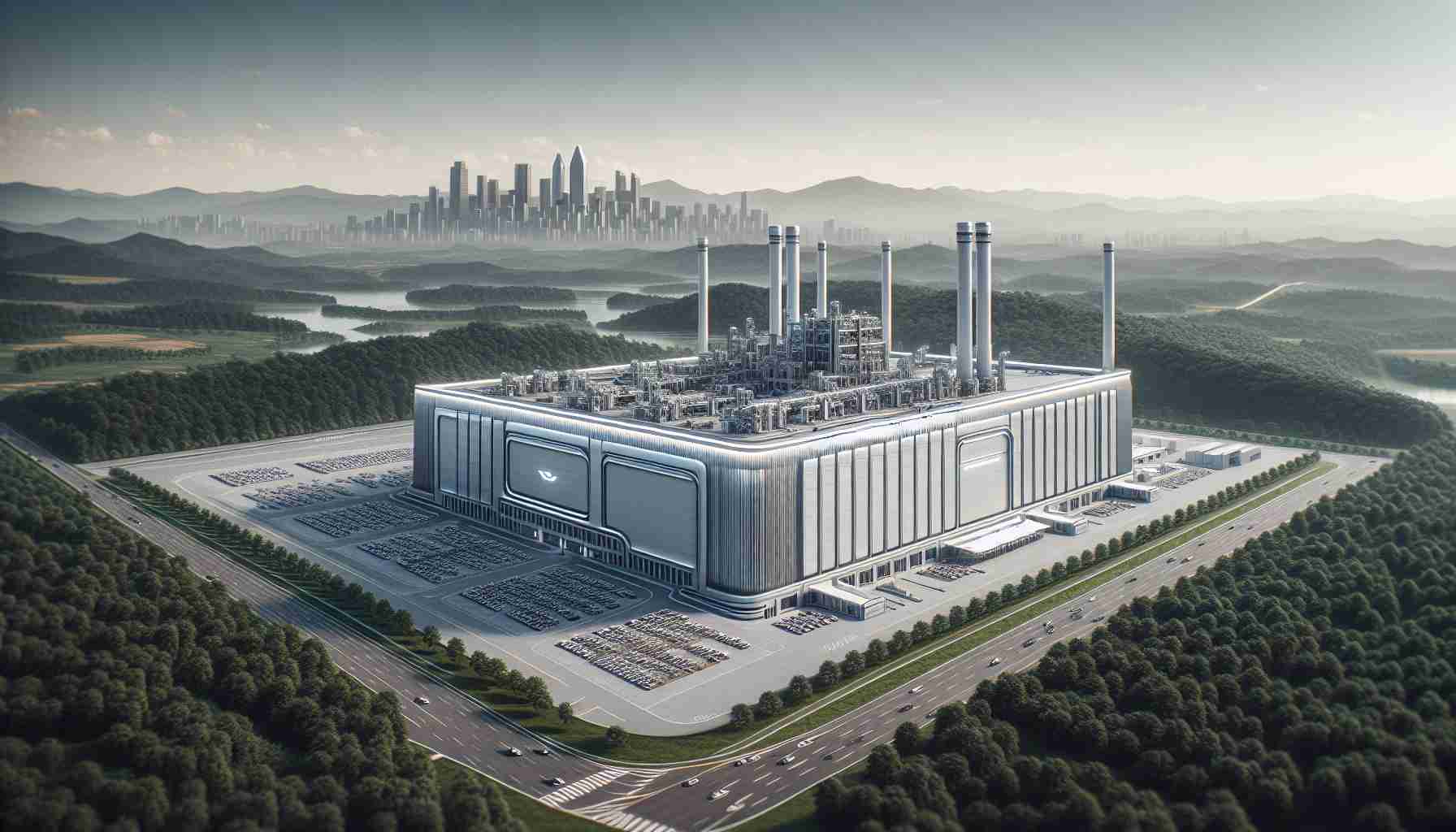- Toyota is launching its first EV battery manufacturing plant outside Japan in Liberty, North Carolina.
- The facility will begin production in April 2025 with an investment of nearly $14 billion.
- Approximately 5,000 new jobs will be created, boosting the local economy.
- This initiative is part of Toyota’s broader strategy to power various electric vehicles with advanced lithium-ion batteries.
- The move reinforces Toyota’s commitment to sustainability and reducing carbon emissions in automotive production.
- Toyota aims to lead in the rapidly growing EV market through innovation and enhanced battery capabilities.
Toyota is making waves in the automotive industry with an exciting announcement: the launch of its groundbreaking electric vehicle (EV) battery manufacturing plant in Liberty, North Carolina, the first of its kind outside Japan. Slated to begin production in April 2025, this facility is part of a grand vision to power hybrid, plug-in hybrid, and fully electric vehicles with cutting-edge lithium-ion batteries.
This ambitious project comes with a staggering investment of nearly $14 billion, promising to create around 5,000 new jobs and significantly boost the local economy. As part of Toyota Battery Manufacturing North Carolina (TBMNC), the plant will not only advance Toyota’s electrification strategy but also solidify its position as a key player in the fast-growing EV market.
With a rich history of automotive production in the U.S., including plants in states like Alabama and Texas, Toyota is doubling down on its commitment to sustainability and innovation. The new plant highlights the company’s ongoing dedication to reducing carbon emissions and cultivating environmentally friendly practices in automotive manufacturing.
As the world accelerates toward a greener future, Toyota’s latest venture symbolizes a pivotal shift in electric vehicle production. By enhancing its battery capabilities, Toyota is setting the stage for a cleaner tomorrow while creating thousands of jobs.
The takeaway? With this significant investment in EV battery technology, Toyota is not just keeping up with the competition; it’s leading the charge toward a sustainable automotive revolution.
Breaking Boundaries: Toyota’s Electric Future Unveiled!
Toyota’s New Electric Vehicle Battery Plant: A Game Changer for the Automotive Industry
Toyota is making significant strides in the automotive sector with the launch of its new electric vehicle (EV) battery manufacturing plant, set to open in Liberty, North Carolina. This facility marks a historic move as it is the first Toyota plant dedicated to EV battery production outside of Japan. Below, we explore additional relevant information that sheds light on this groundbreaking venture, including anticipated market implications, features of the battery technology, and the broader context of the EV landscape.
# New and Relevant Features of Toyota Battery Manufacturing North Carolina
1. Advanced Battery Technology: The plant is expected to utilize cutting-edge lithium-ion technology, aiming to enhance battery efficiency, longevity, and overall performance for various vehicle types, including hybrids and fully electric models.
2. Sustainability Practices: As part of its operational strategy, Toyota plans to implement eco-friendly manufacturing processes, which include the use of recycled materials and energy-efficient production methods, aligning with global sustainability trends.
3. Supply Chain Localization: This facility will help localize the EV supply chain by providing critical components closer to manufacturing plants, which reduces logistics costs and carbon footprint.
4. Market Forecast and EV Growth: According to recent market analysis, the EV market is expected to grow significantly, reaching over $800 billion by 2027. Toyota’s investment positions it strategically to capture a sizeable share of this expanding market.
5. Job Creation and Economic Impact: The creation of approximately 5,000 jobs will not only invigorate the local economy in North Carolina but will also contribute to workforce development in advanced manufacturing sectors.
# Key Questions Regarding Toyota’s EV Battery Plant
1. What impact will the Liberty plant have on Toyota’s competitiveness in the EV market?
The Liberty plant is crucial for Toyota’s strategy to enhance its ability to produce batteries locally, thus reducing dependency on overseas suppliers. This not only lowers costs but also increases production speed, placing Toyota in a favorable competitive position in the rapidly evolving EV market.
2. How does Toyota’s investment align with global sustainability goals?
By committing nearly $14 billion to this facility, Toyota demonstrates its alignment with global sustainability goals, particularly the United Nations’ Sustainable Development Goals (SDGs). The focus on eco-friendly manufacturing processes and reduction of carbon emissions underpins the automotive industry’s transition toward greener alternatives.
3. What innovations are anticipated from the upcoming technology in EV batteries?
Innovations like solid-state battery technology and advancements in lithium-ion battery chemistry are expected. These innovations may result in improved energy density, faster charging times, and enhanced safety, providing consumers with better performance in electric vehicles.
# Suggested Related Links
For more information about Toyota and its commitment to electric vehicles, check out these links:
– Toyota Official Site
– Torque Life
– EVBox for EV Insights
Toyota’s new manufacturing plant is a strategic move that not only sets the stage for future growth in the EV sector but also underscores a significant shift towards sustainable automotive practices. With its extensive background in traditional automotive manufacturing, the company stands ready to adapt to a new era of transportation.
